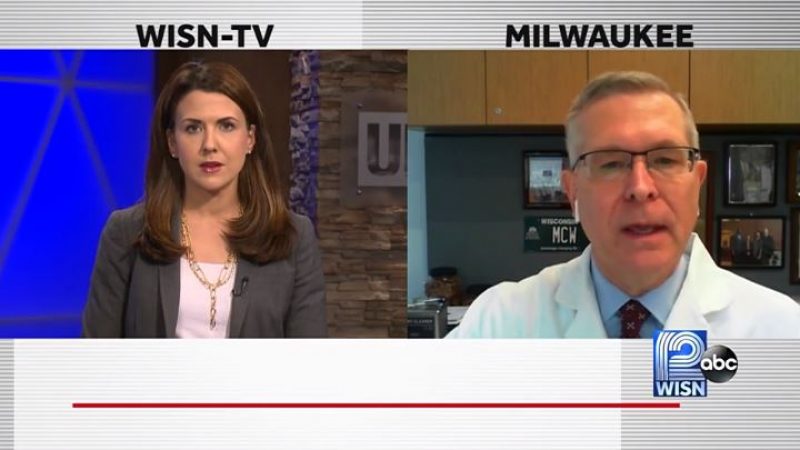Wisconsin is making “good progress” in fighting the COVID-19 pandemic, the head of the Medical College of Wisconsin said.
“I think we’ve done an exemplary job of slowing the spread of COVID-19 in Wisconsin,” Dr. John Raymond, president and CEO of MCW, said in an interview aired Sunday on “UpFront,” produced in partnership with WisPolitics.com.
“In many ways, our approach should be a model,” he said.
Six weeks into the safer-at-home order issued by Gov. Tony Evers, Raymond said Wisconsin seems to “be reaching an equilibrium in the pandemic.”
>> WisPolitics is now on the State Affairs network. Get custom keyword notifications, bill tracking and all WisPolitics content. Get the app or access via desktop.
“Over the last month, we’ve developed new tools that we need to stay on top of the pandemic, with substantial amounts of new testing coming online, and a public health infrastructure that’s been mobilized, that will allow us to identify COVID-19 infections quickly and to trace and isolate the contacts of those individuals. So good progress,” Raymond said.
In another segment, Brandon Scholz, president of the Wisconsin Grocers Association, said a disruption in the nation’s food supply isn’t likely at this time, even after some big-name meat processing and packing companies announced temporary shutdowns due to high numbers COVID-19 cases.
“Inventory at the store level is pretty good. Inventory from suppliers is pretty good,” he said.
Scholz said grocers would watch purchases and the supply chain, so enough food remains.
Also on the program, former state Commerce Secretary Aaron Olver said watching the COVID-19 pandemic is “a little bit of a flashback.”
Olver had a near-fatal bout with the H1N1 flu in the 2009 pandemic. He spent weeks in the ICU at a Madison hospital, experienced kidney failure and had to learn to walk again.
Olver, who is now managing director of University Research Park, said health care and economics are now “intertwined in a way they never really have been before.”
He said he doesn’t see the current crisis as a choice between health care or the economy.
“It’s really not about when government says it’s the right time to open the economy. It’s really about when people have confidence to go back to restaurants, to go back to concerts, to go back to sporting events, or you know, the gym,” he said. “We need to tackle the health care crisis, so that we can give people the confidence and start to behave normally again.”
See more from the program:
http://www.wisn.com/upfront


